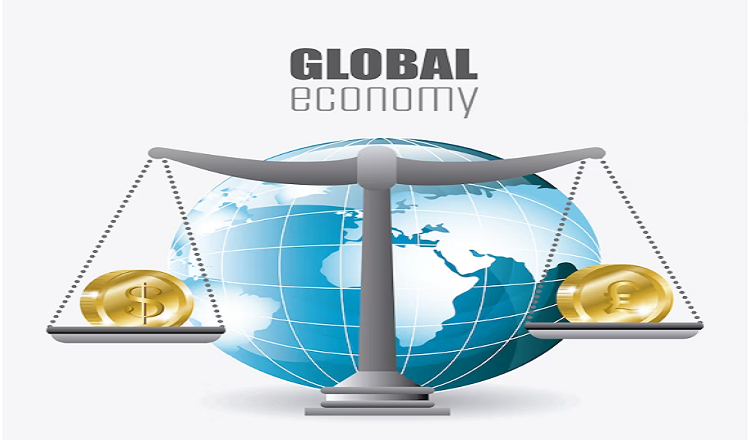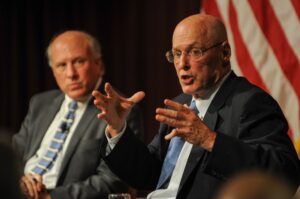Pros and cons of globalization on the economy

Globalisation is a word that has been used a lot for many years. Some people can’t get enough of this kind of word, while others would rather not think about it. Whether you like globalisation or not, you can’t deny that it has a big effect on the world we live in, and the business is no exception. So, let’s look more closely at the pros and cons of how globalisation affects the US economy.
First of all, let’s talk about what we mean when we say “globalisation.” Simply put, globalisation means that the world is getting more and more linked together through trade and contact. Technology and transport improvements have made it easier than ever for people and businesses to connect across countries and trade goods and services. This has made the global economy more connected, and countries are becoming more and more dependent on each other for trade and business.
So, what does this mean for the United States economy? On the one hand, globalisation has given businesses a lot of new possibilities. They can now reach new markets and take advantage of cheaper prices in other countries. But it has also caused some problems, such as a loss of jobs and a difference in pay. In this piece, we’ll talk about the pros and cons of globalization’s effects on the US economy and look at some of the ways that policymakers are trying to deal with these problems. But don’t worry, we’ll try to keep it fun and maybe even throw in a few bad jokes along the way. Let’s dive in!
Pros of how globalisation affects the US economy
One of the best things about globalisation for the US economy is that it opens up more trade possibilities. When a business can move into new areas, it can reach new customers and find new ways to make money. This can lead to more economic growth and productivity, as well as the creation of new jobs and the start of new businesses. Also, globalisation has made it easier to get goods and services from other countries that are cheaper, which has led to lower prices for both consumers and companies. Overall, there are a lot of good things about how globalisation has affected the economy in the United States. These good things have been helping the economy grow and develop for decades.
Cons of how globalisation affects the US economy
But the bad effects of globalisation on the US economy can’t be ignored. As businesses move output to countries with cheaper labour costs, one of the worst effects is that jobs are lost and wages stay the same in some industries. This could mean fewer jobs in the US and lower pay for those who do stay. Also, globalisation has made income inequality worse by making it more likely that the rich will get the most out of economic growth. There are also bad effects of globalisation on the environment, like more carbon emissions from transportation and industry. Lastly, there are worries about the threat to national sovereignty and security as countries become more and more dependent on each other for trade and business. Policymakers need to deal with these problems to make sure that the benefits of globalisation are shared properly and that the bad effects are kept to a minimum.
How globalisation affects certain parts of the US economy
Some parts of the US economy have changed a lot because of globalisation. In the industrial sector, many jobs have been sent to countries with cheaper labour. This has caused US workers to lose their jobs and see their wages stay the same. The agriculture industry has also been hurt because imported goods have made it harder for small farmers to make a living. On the other hand, there has been a rise in demand for services like consulting and financial services, which has helped the service industry. There has also been growth in the technology sector, with companies like Apple, Microsoft, and Google going global. As globalisation continues to change the US economy, it will be important for policymakers to solve the problems that certain sectors face so that they can compete and do well in a globalised world.
Policies and actions taken by the government in reaction to globalisation
In reaction to the problems that globalisation has caused for the US economy, the government has taken many different steps and made many different policies. Tariffs and trade agreements are often used to protect domestic businesses and workers while also promoting fair competition in international trade. There have also been job retraining programmes set up to help workers who have lost their jobs because of outsourcing and technology learn new skills and find new jobs. There are rules in place to deal with the bad effects of globalisation on the environment, such as carbon emissions and smog. Lastly, protecting intellectual property is becoming more and more important as businesses try to keep their edge in a global market. Because globalisation and the US economy are always changing, these policies and acts will also change over time.
What the future holds for the US economy in terms of globalisation
The effects of globalisation on the US economy are still not clear. There are both chances and problems that could come up in the future. There is a chance that countries will become even more connected and dependent on each other. This could lead to more trade and economic growth. But there is also a chance that countries will move towards protectionism as they worry more about their own businesses and workers. As globalisation keeps changing, it will be important to find a balance between economic growth and social and environmental issues. Policymakers will have to deal with problems like income inequality, the loss of jobs, and damage to the environment, while also encouraging economic growth and new ideas. In the end, how globalisation will affect the US economy will rest on a wide range of political, economic, and social factors.
Conclusion
In the end, the effects of globalisation on the US economy are both good and bad in a lot of different ways. On the one hand, globalisation has led to more trade possibilities, cheaper goods and services, new jobs and industries, and a boost in economic growth and productivity. On the other hand, there are worries about people losing their jobs, wages staying the same, income inequality getting worse, bad effects on the environment, and threats to national freedom and security. As the US economy continues to change in a globalised world, lawmakers will need to deal with these problems in a smart and proactive way.
As viewers, it’s important to stay interested in this topic and learn more about how globalisation affects the US economy. We need to push for policies that support fairness, equality, and sustainability, as well as innovation and economic growth. By staying aware and involved, we can help shape a future where the benefits of globalisation are shared more fairly and the negative effects are kept to a minimum. Together, we can build a better, more stable future for everyone.
Read More You May Like:







